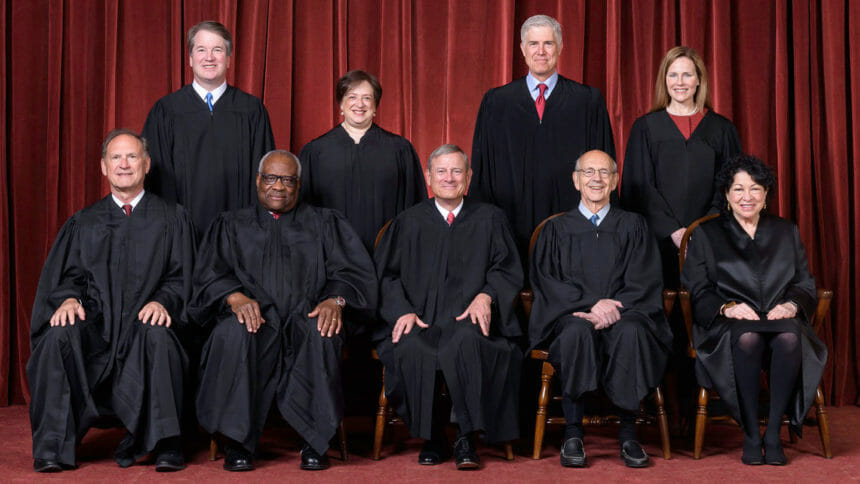The U.S. Supreme Court may determine once and for all whether COVID-19 liability cases related to the Public Readiness and Emergency Preparedness (PREP) Act belong in state or federal court.
If SCOTUS grants the petition from Glenhaven Healthcare, it could decide whether all such cases covered by PREP will be decided at the federal or state level. States can currently consider cases based on federal law, but Glenhaven maintains public health emergency law decisions should be kept exclusively in federal courts.
The law was signed in 2005 by President George W. Bush to give immunity to healthcare providers in times of national emergency. A flood of COVID care-related lawsuits, filed variously in state and federal courts around the country, are the first real tests of PREP.
Reacting to the U.S. Court of Appeals for the Ninth Circuit’s decision to send the case back to the state, Glenhaven wants the federal court to apply the standard set out in the act rather than allow the state court to apply federal law. A family had sued Glenhaven, saying it hadn’t done enough to keep a family member from getting COVID, complications of which led to his death.
Currently, one or the U.S. Circuit Courts of Appeal is considering a similar question, while two others are about to hear oral arguments regarding related matters. Other circuit courts have sent cases back to states when they distinguished between willful and non-willful misconduct.
“A whole of the nation response, in this and other national emergencies, is stronger when healthcare providers have a clear understanding of potential liability,” said Drew Graham, an attorney with Hall, Booth, Smith, who started the firm’s Long-Term Care Practice Group, in an email response to McKnight’s Long-Term Care News.
“Because individual cases filed against providers are currently being decided in both state and federal courts across the country, resolving the question of the proper court for these cases is important to providing clarity for our healthcare providers involved in the emergency response to COVID-19. Going forward, resolving the questions presented in the petition will enhance our ability as a country to mount a coordinated national response to future public health emergencies.”




